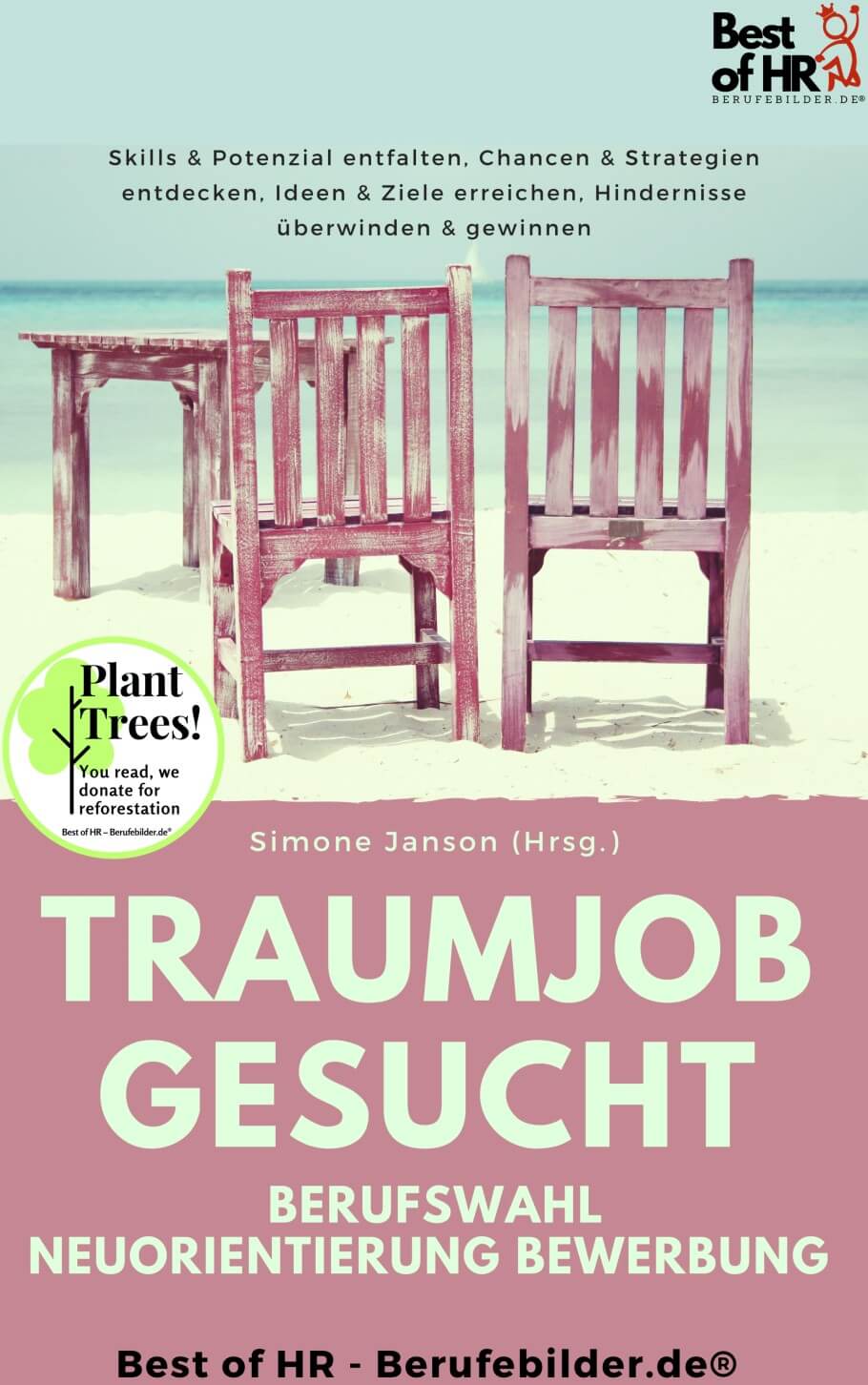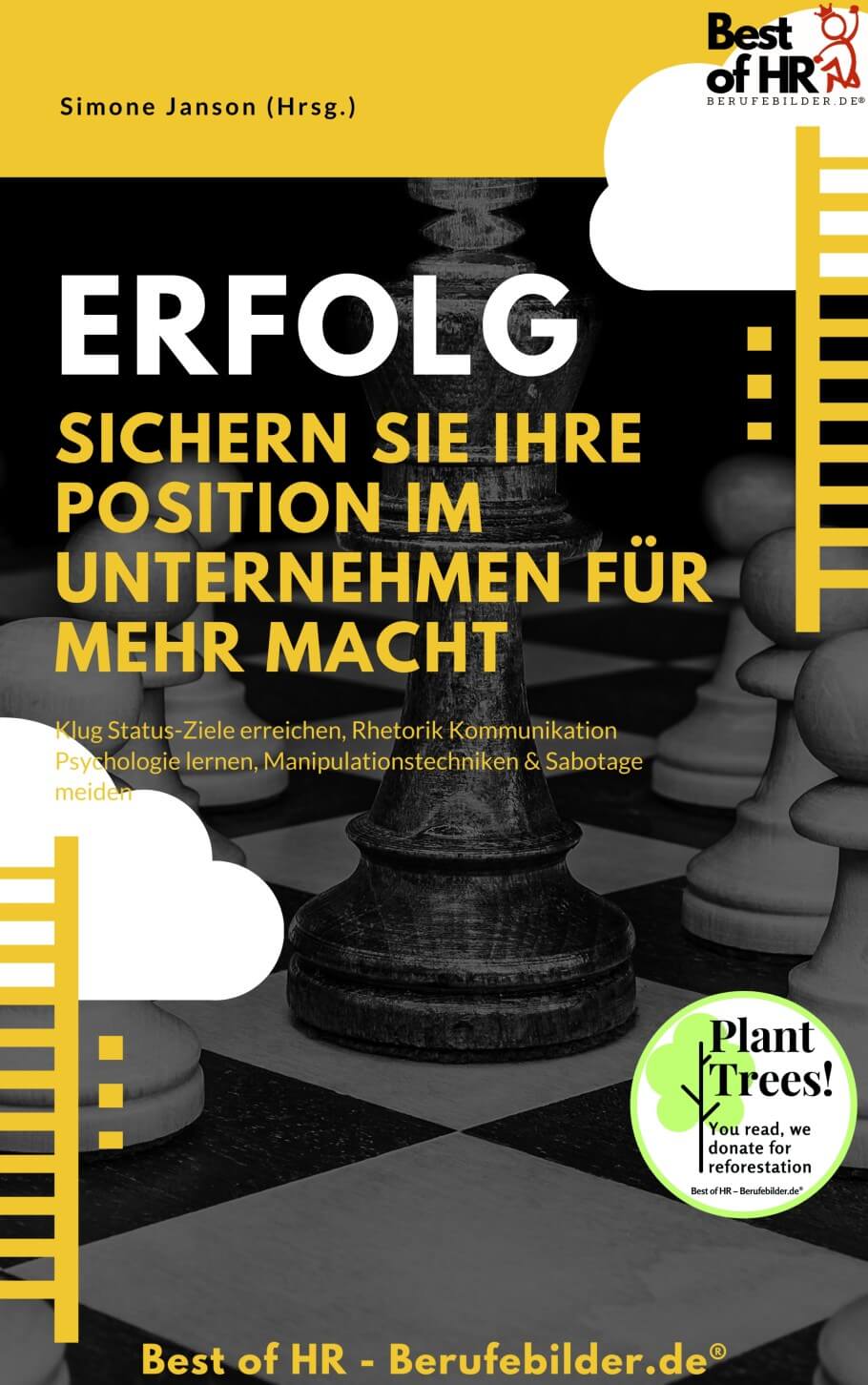Your shopping cart is currently empty!
For their successful, good life Information you really need: Government-funded publisher, awarded the Global Business Award as Publisher of the Year: Books, Magazine, eCourses, data-driven AI-Services. Print and online publications as well as the latest technology go hand in hand - with over 20 years of experience, partners like this Federal Ministry of Education, customers like Samsung, DELL, Telekom or universities. behind it Simone Janson, German Top 10 blogger, referenced in ARD, FAZ, ZEIT, WELT, Wikipedia.
Disclosure & Copyright: Images created as part of a free collaboration with Shutterstock.
Study entry & start of the semester: Students report on their university experiences
By Simone Janson (More) • Last updated on October 28.07.2023, XNUMX • First published on 04.11.2012/XNUMX/XNUMX • So far 7395 readers, 1198 social media shares Likes & Reviews (5 / 5) • Read & write comments
Thousands of students start their studies every semester with high expectations University. But what are your experiences, what do first-year students have to do in particular and what are the initial problems to be overcome? It is clear that in some ways the university is like a fair.

- Every beginning is difficult?
- New students report their experiences
- Missing studies at the PH
- Effortless combination study
- Early specialization as a countermeasure
- What can students do?
- A question of own expectation
- Top books on the subject
- Read text as PDF
- Advice on success, goal achievement or marketing
- Book eCourse on Demand
- Skate eBook as desired
Every beginning is difficult?
Only to learn, what a really interested, nice people get to know and in general - finally make life according to their own ideas. Many new hopes and expectations are linked to the new phase of life. Not infrequently, however, disillusionment sets in after the first few weeks and months at the universities:
Lots of deadlines have to be met, timetables are closed to organize, one test follows the next. Overcrowded lecture halls, in which you can hardly find a seat despite showing up on time, are also part of the problem in some places Everyday life, as well as the frustration that the urgently needed book from the library is once again not available. How do freshmen experience the start of their studies and how did they overcome the initial problems? Two female students report in my Article on study and Career choice about her first few weeks at college.
New students report their experiences
The books on the subject (advertising)
If you are fresh from school, universities often find confusion at first: enrollment deadlines that you want to keep, timetables that you have to organize yourself, and crowded lecture halls where you can hardly find a seat. A lot has changed with the introduction of bachelor's and master's programs - but not always for the better. On the contrary, much has become even more confusing. How do first-semester students start their studies today?
Missing studies at the PH
Isabella von Dapper-Saalfels only made the entrance to the university with luck: as she did not know for a long time what she would like to study, she missed the admission test by one day.
“For the English test that I had to take in order to be able to enroll at all, the deadline had actually already expired. The study place I got it because, fortunately, I was able to take the test directly from the Professorwas allowed to put in. ”
reports the twenty-one-year-old, who is now studying European Studies in the second semester with a focus on English at the College of Education in Karlsruhe. The final goal is after eight semesters is the state examination, your professional goal is the primary school teaching office, preferably at German schools or embassies abroad.
Before that, however, the first-year student has to find her way around the university. And above all, this means putting together the study plan yourself. She helped with the student counseling of the student council and the introductory events in the first week of the semester. However, Isabella regrets that she does not have to choose her events as she pleases, but according to the requirements of the curriculum. And this provides that students from each department visit a fixed number of events per semester. This considerably restricts freedom of choice, as the prospective teacher criticizes:
“For example, I have to attend three lectures each semester in the subjects English, Biology and German etc. in order to be able to study in the standard period of study. Unfortunately, only a limited number of courses per subject are offered per semester. It would be nicer if I could say: 'I am not interested in the German lectures this semester, I would rather do biology' - free of any requirements. ”
In addition, the student commutes two hours a day from her place of residence to her place of study in Karlsruhe. She uses the travel time on the train to read and prepare texts. She also tries to make her events as compact and tight as possible and to keep idle times and breaks as short as possible. However, this is made more difficult by the fact that Isabella cannot always attend the lectures for which she has registered. The registration works quite simply in the Internet, but the place is by no means over for sure. Because everyone who has registered must appear for the first lecture. Only then are the students informed whether they still have a place. This is to ensure that the lectures do not have more than a certain minimum number of participants.
Even if you the small number of participants of usually about 30 and the close Contact To the Professoren fallen in principle, Isabella was surprised by the structure of the lectures themselves: she had expected the specialist knowledge from the first Hand directly from Professor to get. Instead, many lectures were held largely by students in abstracts. Annoyingly, she feels that she has to be present at such events:
“I could also teach myself a lot from books. Instead, attendance lists are kept and you can only be missing twice. All in all, it would be nice if this course were less trained and organized more efficiently. However, I would also not advise anyone not to live at the place of study: it is all much more stressful and you experience less of student life ”
Effortless combination study
Discounts for your success (advertising)!
Lin Bautze also appreciates the good contact with fellow students and Professorin. The twenty-two-year-old is studying environmental and resource management at the comparatively manageable University of Cottbus - a so-called combined course that combines elements from different departments such as Economy, sociology, politics, law and of course the natural sciences. In addition, the entire course is in English.
Of the six semesters that students have to complete their bachelor's degree, one semester abroad and one for the bachelor's thesis and exams are also intended. From the semester abroad, however, only threeCourses are credited. This means that students only have to stay for just under two years for the actual study - at least if they want to achieve their degree within the standard period of study. Accordingly, Lins timetable is packed:
“On some days I have events from 7 a.m. to 19 p.m. But to make sure it doesn't stop there: I have to study seven or eight subjects per semester and take at least one exam in each subject. Usually there are even two or three exams, plus essays and presentations. It looks like the 8 semester diploma has been packed into a four-semester bachelor's degree. Even though I have already learned a few things from a trial course during high school: I never thought that studying was so demanding ”
groans the student who tries to cope with the high workload with organizational and time management measures. For example, by writing to-do lists and yourself Set sets what she wants to achieve per semester. In addition, she works immediately after every event so that important things don't get left behind. The student sees one of the main differences to school in this personal responsibility:
“Of course we also set up learning plans there and made lists. But the social pressure from parents and teachers to learn was much greater. During your studies there is a risk that you simply don't have any Lust has because the sun is shining. There is no compulsory attendance in my course. And if you don't go there, there is less incentive to learn the material at home - precisely because the contact with fellow students and Professoren is missing. Not staying on the ball takes revenge on this degree immediately. Everyone is asked to organize themselves properly. ”
But there are other points that differentiate the study from the school. Although Lin receives a ready-made standard course plan every semester; However, she can not simply attend the events, but must sign up for each course individually. And even the lecture itself is quite different than Lin knows it from the school: Namely in the form of frontal teaching, in which the Professor tell something in front and write to everyone.
Early specialization as a countermeasure
A special feature of Lin's course is the many different subjects she has to take. She finds the bandwidth interesting, but increases the workload. It is therefore important not to ignore the common thread verlieren. Since you can't cover everything, Lin tries to specialize in the topic of waste management - even if the bachelor's degree is intended to give a broad overview and the actual specialization takes place later in the master's degree.
But Lin sees benefits in focusing early on a topic that she will then write in an essay or Presentation Sometimes biological, sometimes sociological Perspektive illuminated. As a result, despite the different subjects, she can deal more intensively with waste management, read up on it and, over time, learn more and more about the topic that interests her. At the same time, the early specialization saves a lot of time and effort, especially with regard to the bachelor thesis.
Despite all countermeasures: Studying remains stressful. Only five to ten percent of students manage to complete their Bachelor's degree during the normal period of study. And of the 70 classmates who started with Lin, there are just 30 left after two semesters. Those who want to avoid early dropout should know their own limits well and household with its resources, as the student explains:
“Everyone has to know for themselves how much Energy he has and what he can expect. That depends on the type. Comparisons with others don't help much, because of course there are high-flyers who seem to be able to do everything easily. For example, I did everything in the first semester. But I only studied for the exams and didn't take anything with me. I soon noticed that you couldn't go through this pressure and this workload for three years - at least not without getting depressed - and downshifted."
After all, she can too Choice of the place of study can be a criterion for successful studies. Lin, who originally comes from Berlin, made a conscious decision to study in a small town: Although there are far fewer offers in Cottbus than in Berlin, that is exactly the advantage: fewer distractions help her to complete her studies. The manageability of the city is also a great advantage, especially with such a complex course, as all events take place in a small area. And, according to the student, you get to know fellow students much faster because you keep bumping into each other.
What can students do?
Stress, being overwhelmed, difficulties organizing your studies – these are things that Dr. Andreas Fijal from the Freie Universität Berlin knows his day-to-day consulting. In the Department of Law Fijal is Vice Dean for Teaching, ie Dean of Studies, Head of the Study and Examination Office and LLP / ERASMUS Officer. Performance pressure has always been an issue for aspiring lawyers. However, with the conversion to Bachelor's and Master's degree programs, the students of other subjects are also increasingly affected, as the dean of studies makes clear:
“The bachelor’s and master’s courses are very schooled. Also, they tried that Curriculum Vitae to pack the previous diploma or master’s courses from nine into six semesters. This results in a high density of examinations, which many students rightly take criticize. We urgently need to make improvements and are therefore also getting the opinions of the students. But they are actually divided: while some complain about the high demands, others are happy that they can complete their studies faster and position themselves on the job market at an early stage.”
However, until the new degree programs have been adapted, the students must continue with the current one System get along. And that means being optimally organized and informed. Fijal advises future students to take advantage of all the advice the university has to offer beforehand. This includes, for example, study information days, where all courses are presented and can then be viewed directly by applicants as a taster course. In addition, every university offers a wide range of information in text, but also as video. The student advisory service can also help.
However, the dean of studies Fijal advises not only to leave it with the general information: it is important to make a pre-selection and then to act purposefully. On the websites of the universities, there are study and examination regulations that provide precise information about the structure and requirements of the study programs. In addition, there are again for many study programs own course advisors or at least study course responsible, which one can ask.
For difficulties that arise during your studies, such as fear of exams, illnesses or maternity, there are special advice centers at many universities - for example a family office, a women's representative or psychological advice. Special software that shows overlaps in time helps with the creation of the study plan. who in time Problems If you have to attend certain events, e-learning offers, where students can work on the materials accompanying the event on their computer at home, can help - an offer that Freie Universität is planning to expand, but of course cannot completely replace face-to-face events.
Those who do not achieve certain services at the Free University within certain deadlines must undergo a so-called examination advisory procedure. What this monstrous term is all about, explains Dean of Studies Fijal:
“We don't want to control our students, we want to analyze together with them why their studies aren't following the normal course. This can sometimes even be due to the choice of subjects: In the so-called combination courses, in which extremely different subjects such as Near Eastern Archaeology, Neo-Greek Studies and Music Theory can be combined, it is of course difficult to pack courses from different subject areas into one timetable. We give this to be considered when choosing a subject, but we don't want anyone else's Combination prescribe. We then take a close look at the reason for the delay and work out an individual plan with the students as to how they can still complete their studies in a timely manner after exceeding the standard study periods.”
Fijal also points out that for Application, Enrollment but also the registration for exams, certain deadlines must be adhered to. First-year students should also get detailed information about this, because if you miss the dates, you usually look into the tube. However, there is the option of re-registering late, for example by paying a late registration fee, or submitting an application to the examination board for admission to the examination after late registration.
A question of own expectation
In principle, successful studies always depend on one's own expectations - believes Petra Ruthven-Murray, who has been one of three owners of the private student advisory service PlanZ for years and has been helping young students with their choice of subjects and Orientation helps at universities. And these expectations are very different, as she knows from experience:
“Roughly speaking, we have identified two attitudes towards studying among our clients: Some see studying as job-related Vocational Training, in which specialist knowledge required in the profession is to be conveyed in an adequate and targeted manner. Studying is a necessary stage to become an ophthalmologist, key account manager or teacher. The others see the course more in the sense of Humboldt's ideal of education as a possibility, unlimited Background record. These students often have klare professional goals; but they use the existing structures at the universities more intensively, for example they attend non-specialist offers from other faculties, lecture series, are politically active, etc., even if this prolongs the study period. Every attitude has its justification. Every student should question what they expect from their studies and organize themselves accordingly.”
Top books on the subject
Read text as PDF
Acquire this text as a PDF (only for own use without passing it on according to Terms and conditions): Please send us one after purchase eMail with the desired title supportberufebilder.de, we will then send the PDF to you immediately. You can also purchase text series.
4,99€Buy
Advice on success, goal achievement or marketing
You have Ask about career, Recruiting, personal development or increasing reach? Our AIAdviser helps you for 5 euros a month – free for book buyers. We offer special ones for other topics IT services
5,00€ / per month Book
Book eCourse on Demand
Up to 30 lessons with 4 learning tasks each + final lesson as a PDF download. Please send us one after purchase eMail with the desired title supportberufebilder.de. Alternatively, we would be happy to put your course together for you or offer you a personal, regular one eMail-Course - all further information!
29,99€Buy
Skate eBook as desired
If our store doesn't offer you your desired topic: We will be happy to put together a book according to your wishes and deliver it in a format of your choice. Please sign us after purchase supportberufebilder.de
79,99€Buy
Here writes for you
 Simone Janson is publisher, Consultant and one of the 10 most important German bloggers Blogger Relevance Index. She is also head of the Institute's job pictures Yourweb, with which she donates money for sustainable projects. According to ZEIT owns her trademarked blog Best of HR – Berufebilder.de® to the most important blogs for careers, professions and the world of work. More about her im Career. All texts by Simone Janson.
Simone Janson is publisher, Consultant and one of the 10 most important German bloggers Blogger Relevance Index. She is also head of the Institute's job pictures Yourweb, with which she donates money for sustainable projects. According to ZEIT owns her trademarked blog Best of HR – Berufebilder.de® to the most important blogs for careers, professions and the world of work. More about her im Career. All texts by Simone Janson.


















Post a Comment